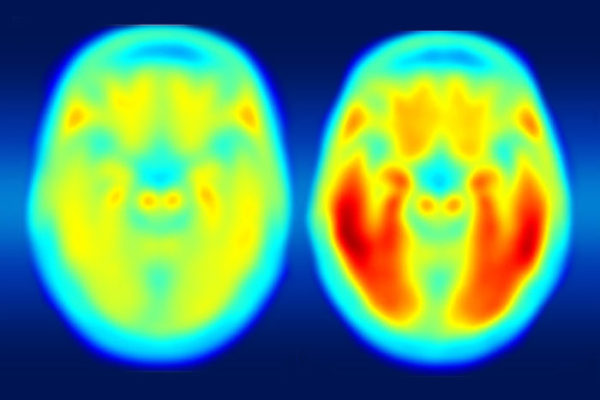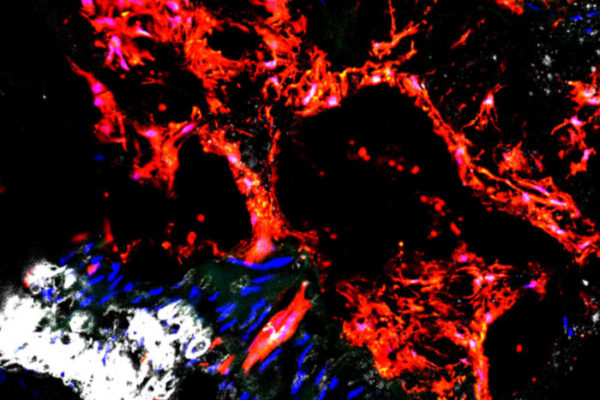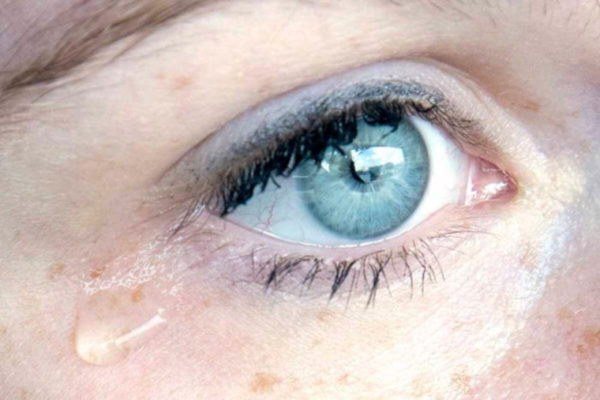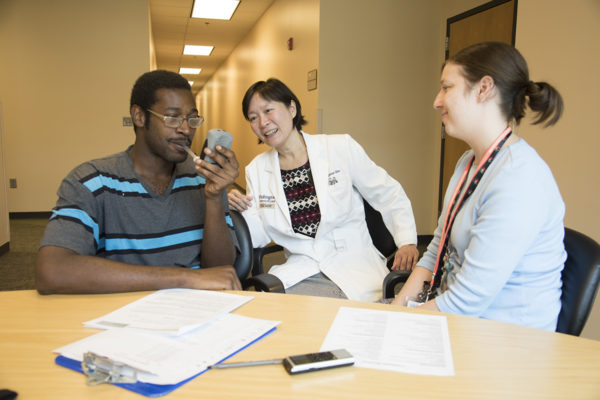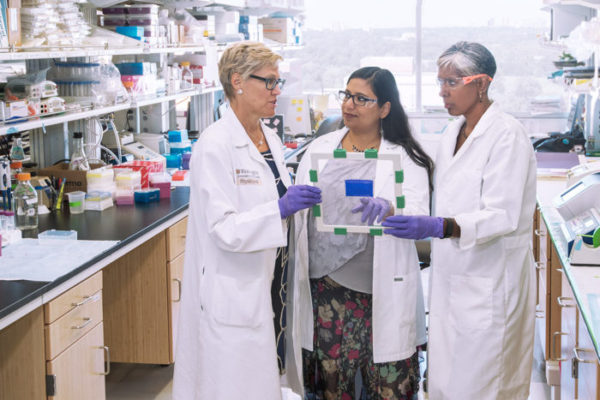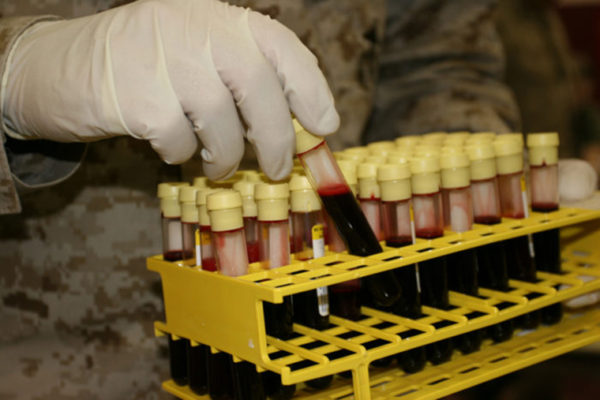Consortium to investigate tau buildup in Alzheimer’s disease
Washington University School of Medicine in St. Louis will collaborate with the pharmaceutical companies AbbVie, Biogen, and Eli Lilly & Co. to investigate the buildup and clearance of tau protein in the brains of patients with Alzheimer’s disease.
Scientists find culprit responsible for calcified blood vessels in kidney disease
Scientists have implicated a type of stem cell in the calcification of blood vessels that is common in patients with chronic kidney disease. The study, led by researchers at Washington University School of Medicine in St. Louis, appeared Sept. 8 in the journal Cell Stem Cell.
Faculty team awarded $1.25 million to study ‘swimming cells’
They are the tiny motors present in many of the human body’s most complex systems: cilia and flagella move liquids such as cerebrospinal fluid and mucus past the cell surface, and throughout the body. Both are of vital importance to human health, but how they actually move remains a mystery. A team from Washington University in St. Louis has been awarded a 5-year, $1.25 million grant to study the mechanics of these tiny organelles.
Evidence of Zika virus found in tears
Researchers have found that Zika virus can live in eyes and have identified genetic material from the virus in tears, according to a study from the School of Medicine. The research, in mice, helps explain why some Zika patients develop eye disease, including a condition that can lead to permanent vision loss.
Odom, Wencewicz win Young Investigator Awards for study of infectious diseases
Audrey Odom, MD, PhD, associate professor of pediatrics and of molecular microbiology in the School of Medicine, and Timothy Wencewicz, assistant professor of chemistry in Arts & Sciences, both of Washington University in St. Louis, are the recipients of inaugural ACS Infectious Diseases Young Investigator Awards.
Michalski elected radiation oncology co-chair of NCI steering committee
Jeff Michalski, MD, the Carlos Perez Distinguished Professor of Radiation Oncology at Washington University School of Medicine in St. Louis and a radiation oncologist at Siteman Cancer Center, has been elected radiation oncology co-chair of the National Cancer Institute Genitourinary Cancers Steering Committee.
Even with genetic predisposition for lung cancer, quitting smoking reduces risk
Quitting smoking improves health and lowers odds of developing lung cancer. But a new study led by the School of Medicine shows that even among smokers with a genetic predisposition to smoking heavily and developing lung cancer at a young age, the benefits of quitting are significant.
New center focuses on women’s and men’s reproductive health
A new center at Washington University School of Medicine in St. Louis aims to bring together a cadre of faculty members to conduct basic, translational and clinical research focused on reproductive health.
Why ‘O’ blood types may be more likely to die of cholera
People with blood type O often get more severely ill from cholera than people of other blood types. New research from Washington University School of Medicine in St. Louis may explain why.
Excess weight linked to 8 more cancer types
An international team of researchers, including Washington University School of Medicine in St. Louis, has identified eight additional types of cancer linked to excess weight and obesity: stomach, liver, gall bladder, pancreas, ovary, meningioma (a type of brain tumor), thyroid cancer and the blood cancer multiple myeloma. Limiting weight gain over the decades could help to reduce the risk of these cancers, the data suggest.
View More Stories
